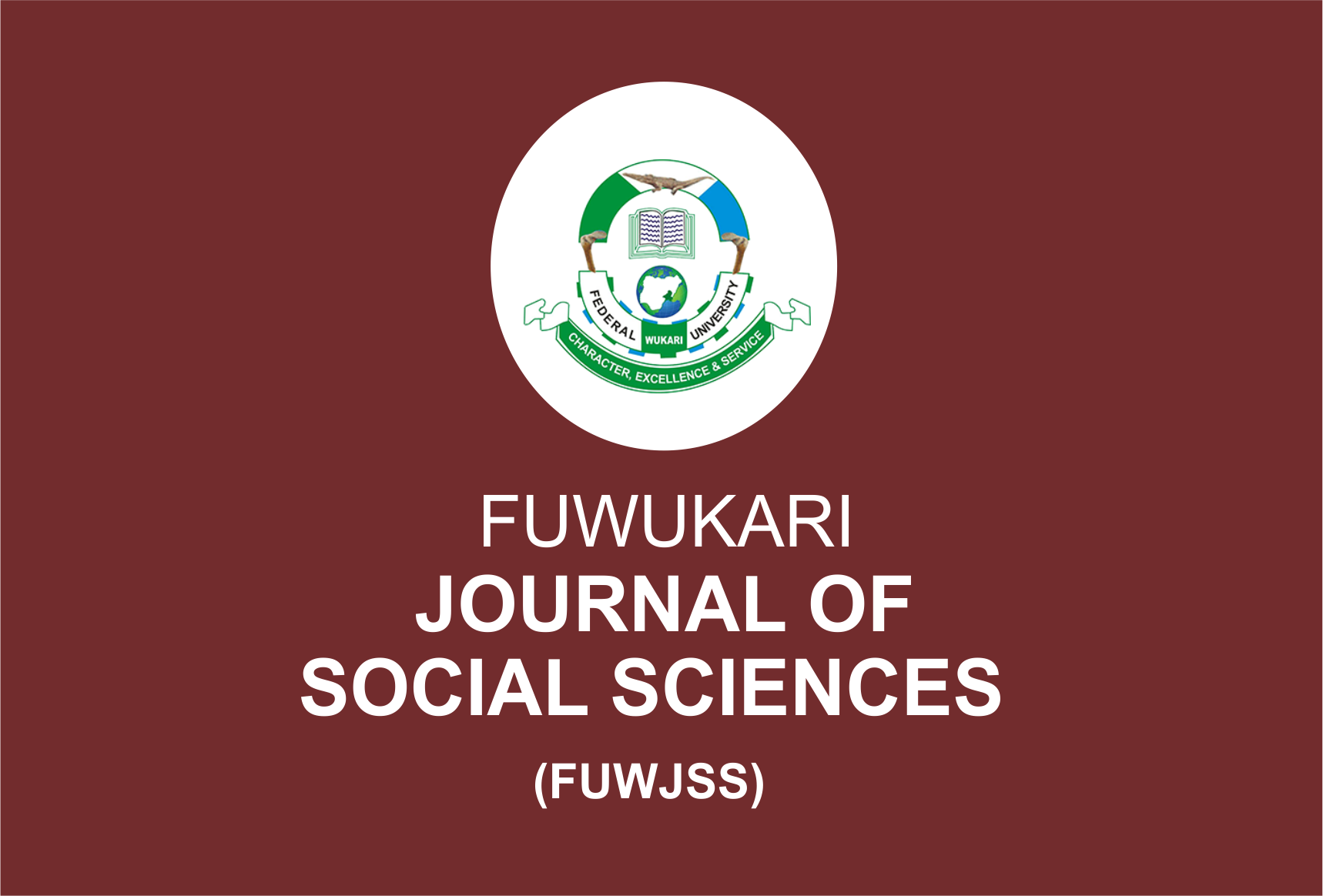Dynamics of Property Crime Victimisation Reporting in Wukari Metropolis, Taraba State, Nigeria
Abubakar Ahmadu, Onyegbulem Emeka Valentine
Keywords: Property crime, police, report, victimization, crime victims
Abstract
It is well acknowledged that the degree of offences determines
victims’ decision to report criminal victimization in any society.
Criminal victimisation has significant impact on the victim as well as
the society at large, because crime victims suffer several loss, injuries
and death in most cases. Therefore, the need to report crime
victimization to appropriate authorities cannot be over emphasised.
In the light of the above, this study examines psychosocial and
economic factors affecting the act of reporting property crime
victimization to police in Wukari, Taraba State. The study
interrogated the psychosocial and economic factors affecting the act
of reporting property crime victimization to the police. This was
necessitated by the seeming gap in previous study which focused on
the predisposing factors of property crime and the commonest
property crime perpetuated in Wukari. The survey research design
was adopted. Closed-ended questionnaires were administered to
three hundred and seventy one (371) respondents. Data were
analyzed using relevant statistical tools which include simple
frequency, mean ratings, and linear regression. The study found that
most cases of property crime victimization were not reported to the
police and that psychosocial and economic factors significantly
influence victims of property crime to report to the police. Economic
cost of reporting and victims’ attitude of seeing their victimization as
a divine manifestation contributed significantly to discouraging them
from reporting to the police. The study recommends that there is the
need for crime victims to report cases of victimisation to appropriate
authorities.
Authors Biographies
Abubakar Ahmadu
Department of Sociology, Federal University
Wukari, Taraba State, Nigeria
Onyegbulem Emeka Valentine
Department of Sociology, Federal University Lafia

